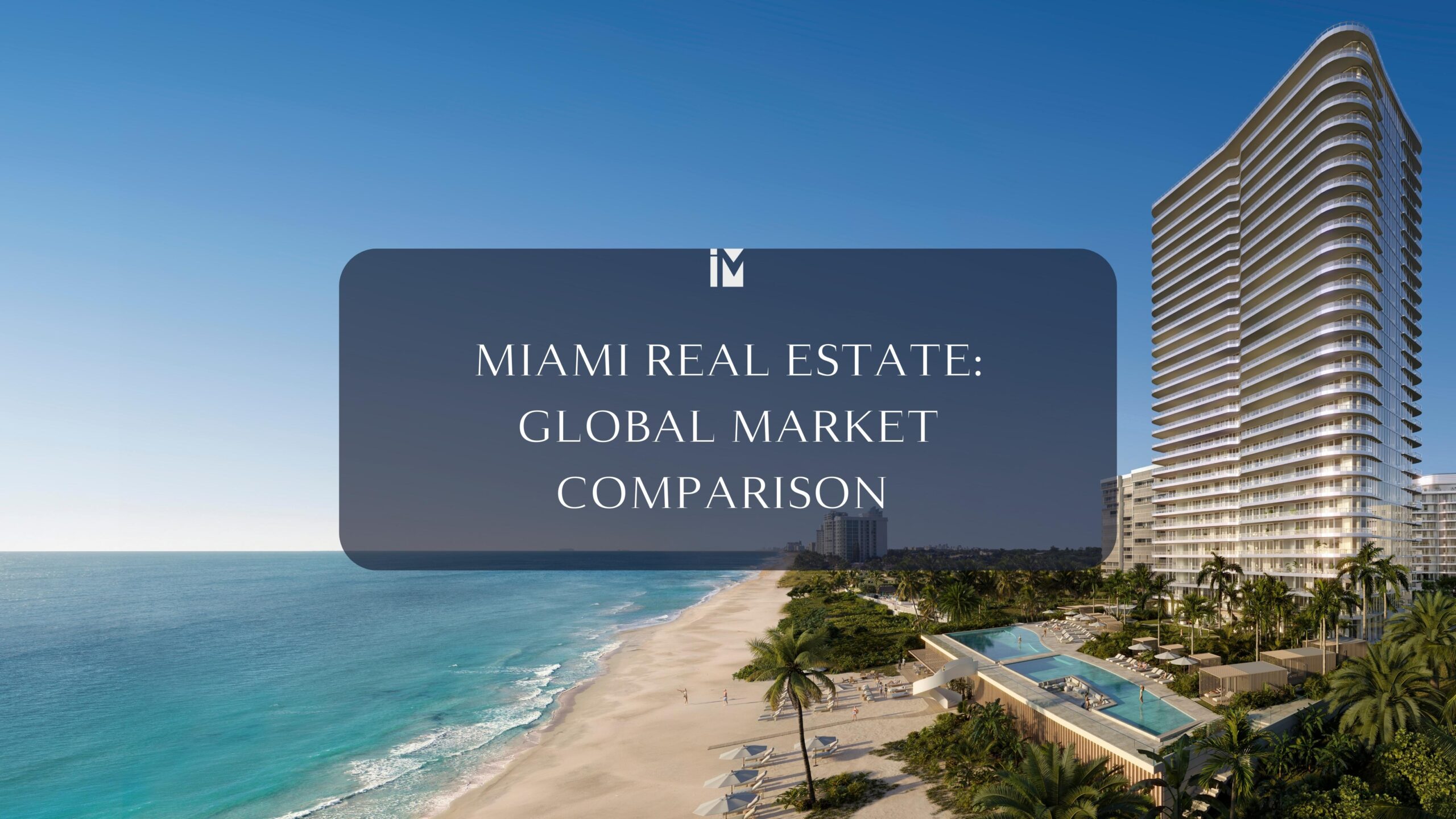Miami Real Estate vs. Other Global Markets: Where Does It Stand?

Miami’s real estate market holds a unique and competitive position in the global real estate landscape. Here’s a comparative analysis of Miami’s real estate market in relation to other global markets:
1. Investment Appeal:
Global Attractiveness: Miami is renowned for its appeal to international investors, particularly those from South America, Europe, and Canada. Its status as a gateway city to the Americas makes it a prime destination for foreign investment.
Competing Markets: Miami competes with global cities like New York, London, Hong Kong, and Dubai for international investment. While these cities offer diverse investment opportunities, Miami stands out for its relatively lower property prices, strong rental income potential, and lower barriers to entry for foreign investors.
2. Property Types:
Luxury Real Estate: Miami’s luxury real estate market is a focal point, with a wealth of high-end condominiums and waterfront properties. This puts Miami in direct competition with global luxury markets like Monaco, Beverly Hills, and the French Riviera.
Residential and Commercial Mix: Miami’s market is diverse, offering a mix of residential, commercial, and mixed-use properties. This diversity sets it apart from many luxury-focused markets, which are primarily residential.
3. Climate and Lifestyle:
Lifestyle Appeal: Miami’s tropical climate, beautiful beaches, and cultural diversity make it a sought-after destination for those seeking a vibrant, cosmopolitan lifestyle. Similar markets like Los Angeles and Barcelona also offer these attractive features.
Climate Resilience: Climate change and sea-level rise are concerns for Miami, and this issue is shared with other coastal cities like Miami Beach, New York, and Tokyo. Resilience efforts in Miami are critical for its long-term viability.
4. Economic Factors:
Economic Growth: Miami’s economy has shown steady growth, driven by sectors such as finance, technology, and healthcare. It competes with cities like San Francisco, London, and Singapore in terms of economic vibrancy.
Tax Benefits: Miami’s favorable tax climate, with no state income tax, has made it an attractive option for individuals and businesses, setting it apart from high-tax regions like New York and London.
5. Cultural Scene:
Cultural Diversity: Miami’s cultural scene is a global asset. It shares this trait with cities like New York, London, and Paris, which are known for their diverse and dynamic cultures.
6. Tourism and Hospitality:
Tourism Hub: Miami’s vibrant tourism industry, driven by its world-famous beaches and events, competes with global tourism giants like Dubai, Paris, and Las Vegas.
7. Market Trends:
Market Resilience: Miami’s real estate market has shown resilience, even during economic downturns. It is often compared to markets like New York, which also tend to retain value during challenging times.
In summary, Miami’s real estate market stands as a distinctive and competitive player in the global arena. It offers unique opportunities for international investors, thanks to its diverse property types, appealing lifestyle, and economic growth. While it competes with renowned cities in various aspects, Miami’s affordability, tax benefits, and cultural diversity continue to set it apart, making it a compelling choice for those seeking a vibrant urban environment with a touch of tropical paradise. However, it’s essential to consider market conditions, investment goals, and regional factors when comparing Miami to other global real estate markets.
Back to Blog





